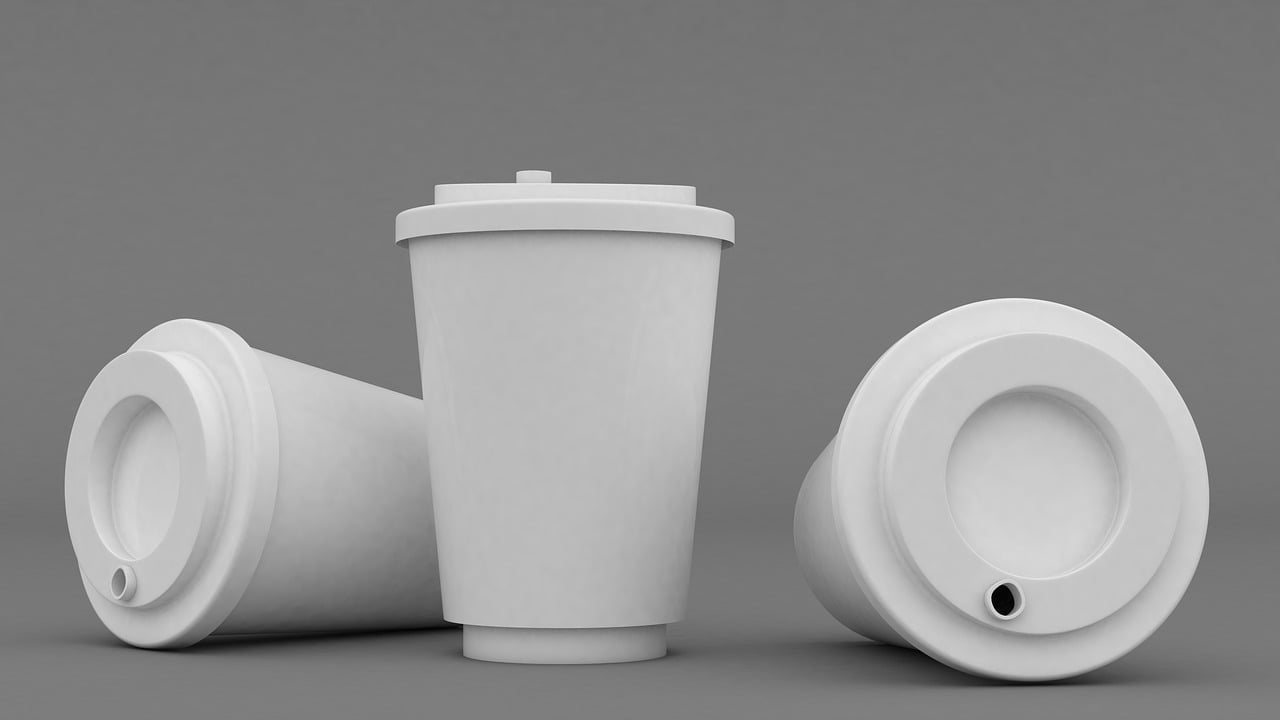Sustainable development and environmental protection – these are the goals that the European Union has on its banners. It pursues them through the implementation of ambitious solutions to help minimize the harmful impact of humans on the planet, thus promoting a closed-loop economy.
One of the ways to realize these goals is the Single-Use Plastic Directive, specifically the Directive of the European Parliament and of the Council (EU) 2019/904 of 5 June 2019 on reducing the environmental impact of certain plastic products, implemented in Poland by the Act of 14 April 2023 amending the Act on the obligations of entrepreneurs with regard to the management of certain waste and the product fee and certain other acts (Journal of Laws 2023, item 877; hereinafter: ‘the Act’).
The aforementioned law came into force on 24 May this year, amending, among others:
- the Act of 11 May 2001 on the obligations of entrepreneurs with regard to the management of certain waste and the product fee (Journal of Laws of 2020, item 1903, as amended, hereinafter as: “the Product Fee Act”),
- the Act of 13 June 2013 on packaging and packaging waste management (Journal of Laws 2023, item 160, as amended, hereinafter as: “Packaging Management Act”).
The analysis of this amendment should begin with the definition of an entrepreneur in Article 2(9b) of the Product Fee Act. According to this piece of legislation, persons importing single-use plastic products (including fishing gear) into the Polish market, both from EU Member States and from third countries, as well as persons manufacturing these products, who place them on the market under their own designation, and persons who, although they have not manufactured these products, place them on the market under their own designation, are considered entrepreneurs. (hereinafter: “Entrepreneur”).
What are the most important changes introduced by the Act?
- Prohibition of placing certain products to the market
According to Annex 7 to the Product Fee Act, placing the following products to the market is prohibited:
- cotton buds, except for those intended for medical purposes,
- cutlery (forks, knives, spoons, chopsticks),
- plates,
- straws, excluding straws for medical use,
- drink stirrers,
- sticks attached to balloons and designed to let the balloons rest on them, including the mechanisms of these sticks, with the exception of balloons for industrial or other professional use, which are not distributed to consumers,
- food containers made of expanded polystyrene, i.e. containers, such as boxes, with or without lids, used to contain food that is:
- intended for direct consumption, on the spot or for takeaway,
- normally consumed directly from the container, and
- ready to eat without further processing such as cooking, boiling or heating
- including containers for fast food or other meals ready for immediate consumption,
- excluding beverage containers, plates and packages and wrappers containing food,
- beverage containers, including their lids and caps, made of expanded polystyrene,
- beverage cups, including their caps and lids, made of expanded polystyrene.
The ban covers the aforementioned products originating from:
- imports from third countries,
- intra-Community acquisition from another EU member state, and
- production in Poland.
Thus, as from 24 May 2023, on the territory of Poland, they may not be introduced into our market.
- Consumer charge
Pursuant to Article 3b introduced into the Product Fee Act, an Entrepreneur:
- operating a retail unit, a wholesale unit or a catering unit in which single-use plastic products that are packaging or beverages or food packaged by that Entrepreneur in these products are offered,
- who packages and offers, by means of a vending machine, including those placed in locations other than a retail unit, wholesale unit or catering unit, beverages or food in single-use plastic products
– shall be obliged to collect a charge from the end-user purchasing these products or beverages or food in these products.
The plastic single-use products subject to reduction in use referred to in Annex 6 are:
- beverage cups, including their lids and caps,
- food containers, including containers such as boxes, with or without lids, used to contain food that is:
- intended for direct consumption, on the spot or takeaway,
- normally consumed directly from the container, and
- ready to eat without further preparation such as cooking, boiling or heating.
– including containers for fast food or other meals ready for immediate consumption, with the exception of beverage containers, plates and packages and wrappers containing food.
Importantly at this point, at the point of sale using the aforementioned products, it is necessary to ensure the availability of alternative packaging which is packaging made of materials other than plastics, including other than biodegradable plastics, or the availability of reusable packaging.
As for the fees themselves, the legislator has set a maximum fee rate of PLN 1 per unit of single-use plastic packaging product. However, the actual rate of the fee, intended to cover the costs of managing waste from these products, has been set by a decree of the minister responsible for the climate, and is
- for a beverage cup, including its lid or cap – 20 groszy,
- for food containers – 25 groszy.
- Recycling fee
Pursuant to Article 3k of the Product Fee Act, an Entrepreneur placing on the market single-use plastic products listed in Sections I and III and Section II of Annex 9 to the same Act is obliged, as of 1 January 2024, to pay an annual fee to cover the costs of:
- the collection of waste arising from products of the same type that it has placed on the market, left in public waste collection systems, including the costs of setting up and maintaining such systems, transporting such waste and processing it,
- the cleaning, transport and treatment of waste arising from products of the same type as those he has placed on the market.
This fee is calculated as a product of the rate and, respectively, the weight or the number of products referred to in the above-mentioned Annex 9 introduced to the market in a given calendar year by a given Entrepreneur.
The rate of PLN 0.20 per kg of products introduced to the market applies to such products as:
- food containers, i.e. containers such as boxes, with or without lids, used for the purpose of placing in them food that is:
- intended for direct consumption, on the spot or for takeaway,
- normally consumed directly from the container, and
- ready to eat without further preparation such as cooking, boiling or heating.
– including containers for fast food or other meals ready for immediate consumption, with the exception of beverage containers, plates and food-containing packages and wrappers;
- packets and wrappers made of flexible materials containing food for immediate consumption from the packet or wrapper without any further treatment,
- beverage containers of three liters or less, i.e. containers used for the preservation of beverages, such as beverage bottles, including their caps and lids, and multi-material beverage containers, including their caps and lids, excluding glass or metal beverage containers with plastic caps and lids,
- beverage cups, including their lids and caps,
- lightweight plastic shopping bags within the meaning of Article 8(15a)(a) of the Packaging and Packaging Waste Management Act of 13 June 2013.
The rate of PLN 0.01 per unit placed on the market applies to products such as:
- pre-moistened handkerchiefs, i.e. pre-moistened handkerchiefs for personal hygiene and pre-moistened handkerchiefs for household use,
- balloons, with the exception of balloons for industrial or other professional use, which are not distributed to consumers,
- tobacco products with filters containing plastics and filters containing plastics sold for use with tobacco products.
- Appropriate labelling of products
According to Article 3j of the Product Fee Act, an Entrepreneur marketing single-use plastic products listed in Annex 8 to the Act is obliged to ensure that appropriate EU labelling is placed on the packaging of these products or on the products themselves.
This Annex lists the following single-use plastic products:
- sanitary towels, tampons and tampon applicators,
- pre-moistened wipes, i.e. pre-moistened tissues for personal hygiene and pre-moistened tissues for household use,
- tobacco products with filters containing plastics and filters containing plastics sold for use with tobacco products,
- beverage cups.
- Educational campaigns
According to Article 11b of the Product Fee Act, an Entrepreneur who places on the market
- single-use plastic products listed in points 5-9 of Annex 10 to that Act, and
- fishing gear containing plastics
– is obliged to finance public education campaigns.
Paragraph 2 of the aforementioned article indicates that public educational campaigns include all activities aimed at raising the environmental awareness of the public in terms of proper waste handling supporting the achievement of a high level of selective collection of such waste, including information with the use of mass media, leaflets, information brochures and posters, as well as the organisation of competitions, conferences and actions of an informative and educational nature.
Furthermore, such public education campaigns should include informing the public about:
- the availability of alternative reusable products and methods of managing waste generated from single-use plastic products listed in points 5 to 9 of Annex 10 of the Act, and fishing gear that constitutes waste containing plastics,
- good practice in sound waste management,
- the impact on the environment, in particular the marine environment, of littering and the inappropriate disposal of waste arising from single-use plastic products and plastic-containing fishing gear,
- the impact on sewerage networks of the inappropriate disposal of waste arising from single-use plastic products.
For Entrepreneurs, this obligation will entail a fee, which:
- shall, by 1 March of the calendar year following the calendar year to which the fee relates, allocate to public education campaigns, or
- shall pay into a separate bank account of the competent marshal’s office by 15 March of the calendar year following the calendar year to which the fee relates, for public education campaigns.
This fee shall be the product of the specified rate and, respectively, the weight or number of units placed on the market in the calendar year to which the fee relates.
The rate of the fee for public education campaigns shall be:
- PLN 0.05 for 1 kg of a product listed in item 8 of Annex 10 to the Product Fee Act and fishing gear containing plastics placed on the market,
- PLN 0.01 per 10 units of the products listed in item 5 of Annex no. 10 to the Act on Product Fee, introduced to the market,
- PLN 0.01 per unit of marketed products listed in items 6, 7 and 9 of Appendix No. 10 to the Product Fee Act.
- Obligation to enter in the register
Pursuant to Article 9 of the Product Fee Act, Entrepreneurs who, within the scope of their activity, are subject to registration in the register referred to in Section 49(1) of the Waste Act of 14 December 2012 (Journal of Laws of 2013, item 21; hereinafter: ‘the Waste Act’), are subject to:
- operate a retail, wholesale or catering unit where food and beverages are packaged in disposable plastic packaging or where such packaging is offered,
- offer and package beverages or food in single-use plastic packaging by means of a vending machine,
- place on the market single-use plastic products referred to in the Annexes to the Act,
- place on the market plastic fishing gear,
- recover or recycle waste from single-use plastic products or fishing gear made of plastics,
- export and intra-Community supply of waste from single-use plastic products or fishing gear containing plastics,
- operate port reception facilities or operate other equivalent collection systems
– will be obliged to include the BDO registration number on documents related to their business activities (to the extent covered by the BDO registration). This refers, for example, to VAT invoices or contracts concluded in the course of business by these Entrepreneurs.
- Annual report
An Entrepreneur marketing single-use plastic products and marketing fishing gear containing plastic shall be obliged to prepare an annual report as referred to in Article 73(1) of the Waste Act.
- Other obligations for specific industries (in addition to the above)
Catering industry and shops preparing food on site
Pursuant to Article 3h of the Product Fee Act, Entrepreneurs are obliged to keep, either in paper or electronic form, records of the number of single-use plastic products listed in Annex 6 to the Act that are packaging purchased and issued to end-users in a given calendar year by a given Entrepreneur.
Manufacturers of beverage packaging
Article 14a of the Packaging Management Act indicates that: “the manufacturer of beverage packaging products which are single-use plastic bottles with a capacity of up to three litres shall be obliged to ensure that such packaging, including its plastic caps and lids, contains a proportion by weight of at least:
1) from 2025. – 25% of recycled plastic if the main component of these packages is polyethylene terephthalate;
2) from 2030 onwards. – 30% recycled plastic.”
At the same time, when placing beverages on the market, single-use beverage packaging that is plastic containers with a capacity of up to three litres may do so if the caps and lids of these plastic containers remain attached to them during the intended use stage of the beverage.
As in the case of the catering industry, the manufacturer of beverage packaging, when placing these products on the market, is obliged to keep records, either on paper or electronically, of the weight of packaging in which he has placed the products on the market in a given calendar year.
Manufacturers of fishing gear
Importantly, in addition to single-use plastic products, the regulations in question also provide for restrictions on the marketing of plastic fishing gear, due to its significant impact on marine pollution.
What is meant by these terms?
- fishing gear – equipment used in fishing or aquaculture to locate, capture or rear living marine resources and equipment floating on the sea surface and used to attract and capture or rear living marine resources;
- waste fishing gears – fishing gears that have become waste within the meaning of Article 3(1)(6) of the Waste Act of 14 December 2012 (Journal of Laws 2022, item 699, as amended 7), including any separate components, substances or materials which, at the time of abandonment or loss of such fishing gears, were part of or attached to them.
The gear regulations are to apply from 1 January 2024 and will cover Traders who:
- import, import from other EU Member States and place on the market fishing gear containing plastics,
- manufacture such products and place them on the market under their own designation;
- place on the market such products under their own designation, the manufacture of which they have outsourced to another entity.
However, as indicated in the Explanatory Memorandum to the amendments to be introduced, Entrepreneurs placing on the market fishing gear containing plastics and carrying out fishing activities within the meaning of Article 4(28) of Regulation (EU) No 1380/2013 of the European Parliament and of the Council of 11 December 2013 on the Common Fisheries Policy, amending Council Regulations (EC) No 1954/2003 and (EC) No 1224/2009 will be excluded from the said obligations.
Accordingly, pursuant to Article 8d of the Act, the Entrepreneur marketing fishing gear containing plastics is obliged to finance the costs of selective collection of fishing gear constituting waste containing plastics that has been delivered to Entrepreneurs operating port reception facilities to Entrepreneurs operating other equivalent collection systems, and to finance the costs of their transport and processing.
The aforementioned costs shall not exceed those necessary to provide waste management services in a cost-effective manner. These costs shall be agreed between the Entrepreneur placing the plastic-containing fishing gear on the market and the Entrepreneur operating the port reception facilities or the Entrepreneur operating other equivalent collection systems.
Equally importantly, the Entrepreneur placing plastic-containing fishing gear on the market is required to achieve a minimum annual collection rate for recycling of plastic-containing fishing gear of at least:
- 5% by weight – for 2024,
- 10% by weight – for 2025
- 15% by weight for 2026,
- 20% by weight – for 2027,
- 25% by weight – for 2028,
- 27% by weight for 2029,
- 30% by weight for 2030 and for each subsequent year.
According to Article 8d(4) of the Product Fee Act: “The minimum annual collection level in a given calendar year shall be calculated as the ratio of the weight of collected fishing gears that are waste containing plastics to the weight of fishing gears containing plastics placed on the market in the previous calendar year, and, in the case of an Entrepreneur who did not place fishing gears containing plastics on the market in the previous calendar year, to the weight of products placed on the market in that calendar year.”
At the same time, such an Entrepreneur who places fishing gear containing plastics on the market is obliged to keep records containing information on the weight of fishing gear containing plastics placed on the market in a calendar year and the weight of waste fishing gear containing plastics collected in a calendar year. Such data must be kept by him for 5 years.
However, and most importantly, as indicated on the second page of the explanatory memorandum to the amendments, the definition of fishing gear, and thus the above regulations, does not include fishing tackle.
- Summary
In analysing the above, it should be noted that the new obligations will primarily affect Entrepreneurs
- from the industry dealing with offering take-away food, including food packed on the spot with disposable packaging (e.g. offering a popular “box diet”;
- those involved in the manufacture of so-called “picnic kits”, shopping bags or tobacco products with plastic filters;
- offering disposable beverage packaging;
- those marketing fishing gear defined in the Act that is not considered typical fishing equipment.
Most importantly, these Entrepreneurs must be prepared that the regulations introduced, on the one hand, entail fees that they will be obliged to pay directly, as well as fees to be passed on to their customers, and, on the other hand, entail many additional record-keeping obligations such as annual reports, the need to keep records, etc.



